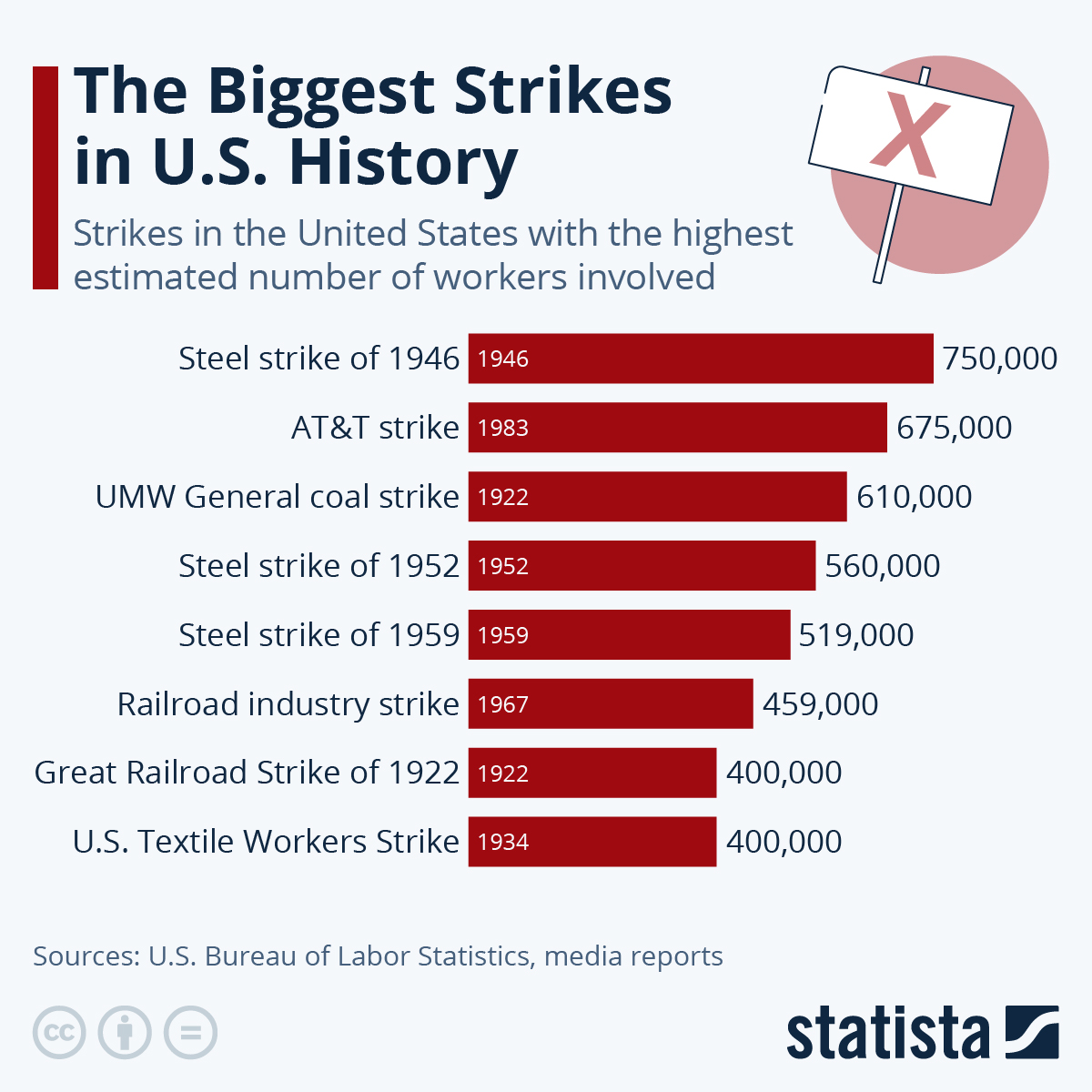While concerted work stoppages organized by unions are still considered a valid way for workers to withhold labor and bring employers back to the negotiating table, the biggest strikes in the United States took place before 1960. As our chart based on data from the U.S. Bureau of Labor Statistics (BLS) and contemporary media reports shows, many of the major strike actions throughout the 20th century were carried out in the steel industry.
On January 21 1946, for example, 750,000 steel workers started withholding their labor, leading to the biggest strike in recorded U.S. history, affecting around 1,000 steel production plants nationwide. This strike can be seen as one part of a bigger labor action movement in 1946, resulting at its height in 250 labor disputes and 1.6 million striking workers, according to BLS data. The steel industry again stood at the forefront of labor disputes in 1952 and 1959. Paired with massive numbers of railroad workers withholding their labor in 1922 and 1967, these two industry branches account for five of the eight largest strikes in United States history.
From 1947 to 1981, the BLS recorded between 145 and 470 strike actions involving more than 1,000 workers per year. This number dropped off sharply from the mid-1980s onward due to advancements in technology, the increasing importance of the service industry and rapidly declining union membership. In 1983, 20 percent of the U.S. workforce was unionized and 83 work stoppages took place, while in 2021, only one in ten U.S. workers was a union member. The biggest labor disputes since the turn of the century involved upwards of 80,000 educators in North Carolina and Arizona in 2018 and 2019, 74,000 workers at General Motors in 2007 and 135,000 SAG-AFTRA members striking against the ad industry in 2000.













